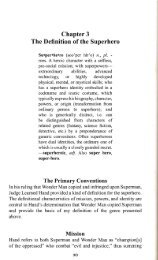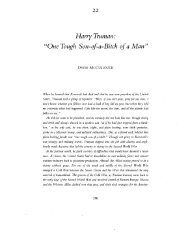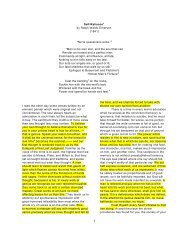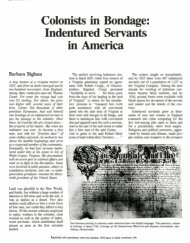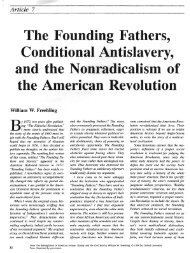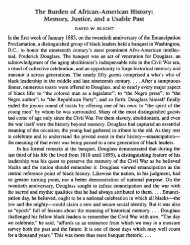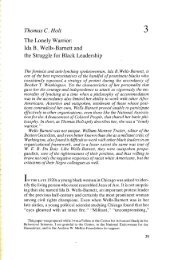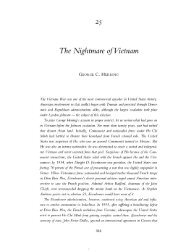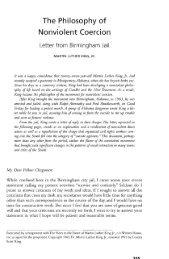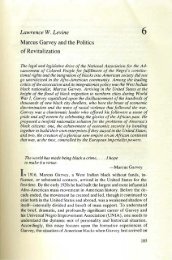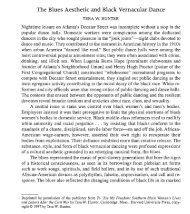Mary - Journeytohistory
Mary - Journeytohistory
Mary - Journeytohistory
Create successful ePaper yourself
Turn your PDF publications into a flip-book with our unique Google optimized e-Paper software.
26_ From Slavery to FreedomThe use of black labor had the curious effect of making it more difficult forblack workers to achieve security and respectability in the world of labor. Manufacturersand entrepreneurs did not hesitate to employ blacks in order to underminewhite labor unions. In 1867, for example, black ship caulkers werebrought from Portsmouth, Virginia, to Boston to defeat white workers' effortsto secure an eight-hour day. Operators of iron and cotton mills and railroadbuilders all looked south for cheap labor, even if it meant the displacement ofworkers with a much higher standard of living. The deliberate degradation ofblack labor by white employers in all sections of the country made it impossiblefor black and white workers to join hands or to present aInlcrl"3ciallabol" solid front to management.conflictsOn the whole blacks were not welcomed into labor organizationsin the postwar period. Some local unions admittedthem, like the carpenters and joiners in Boston in 1866, but most locals wouldnot. The locals, moreover, prevented national unions from adopting a nondiscriminatorypolicy on the grounds that local autonomy must be preserved.When the National Labor Union was organized in Baltimore in 1866, blackswere invited to cooperate in the general movement, but it was made clear thatif they were to be regarded as trustworthy, they must adhere to the true principlesof labor reform. It looked as though blacks were to be effectively barredfrom the white labor movement, and as a result a group of black workers metin December 1869 to organize the National Negro Labor Union. During the nextfew years this organization sought affiliation with white labor, but withoutmuch success. Local blacl, organizations advanced the cause of the blackworker. But white workers did everything possible to retard the growth of ablack labor movement, and black leaders too frequently sought to use their organizationsfor political purposes. Until after 1880 black workers remained, involuntarily,outside the organized labor movement. Meanwhile, as vietims ofruthless and unscrupulous employers, they acquired the reputation of beingstrikebreakers who worked for lower wages than whites. This reputation was tofollow them for several generations after the Civil War.Since Reconstruction was a period in which efforts were made by citizenseverywhere to achieve economic independence through various forms of businessenterprise, blacks did likewise. Lack of capital was an obstacle to theirsuccess in business. In 1865 blacks in Baltimore organized the Chesapeake andMarine Railway and Dry Dock Company, capitalized at $40,000 with the stockdivided into 8,000 shares. At the end of five years the company purchased ashipyard and was apparently prospering, but profits began to decline in 1877,and in 1883 the company went out of existence. In Savannah, blacks invested$50,000 in a business venture that proved worthless. They also failed in an effortto run a land and lumber enterprise in which they had invested .$40,000.Other groups and individuals sought to make a liVing by opening shops, butmany failed because they had no knowledge of how to operate a business,and those who knew how were caught in the depression following the panicof 1873.



